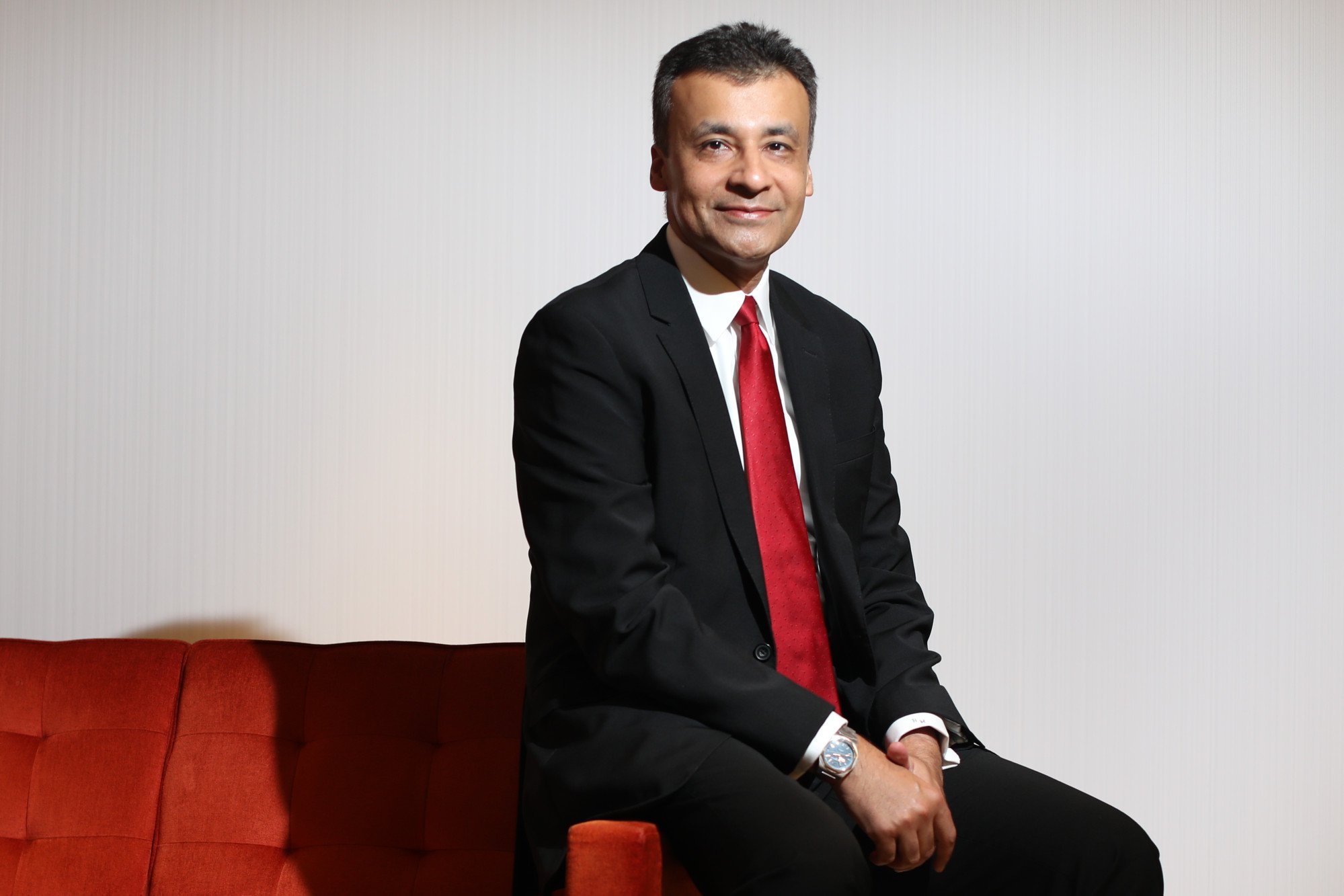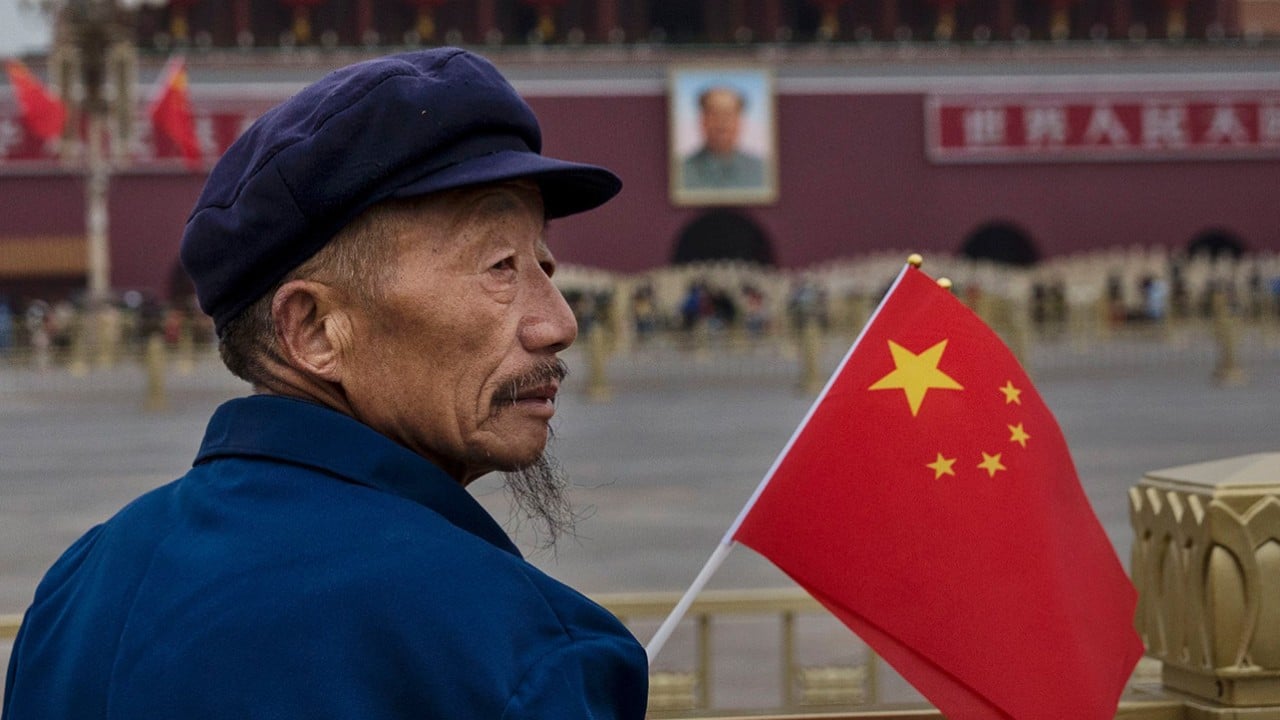
Exclusive | Fidelity plans multiple fund launches in China to tap growing wealth management, pension demand
- Fidelity completed two mutual fund launches in mainland China this year, raising a combined US$862 million
- The London-headquartered investment manager plans to use Hong Kong to tap the Greater Bay Area market
Fidelity International plans to launch a number of mutual funds targeting different asset classes in mainland China to tap the world’s second-largest asset-management market, which is expected to grow to US$40 trillion by 2030.
“The mutual fund market in China is growing rapidly and giving us massive opportunities,” Rajeev Mittal, managing director for Asia-Pacific ex-Japan, told the Post in an exclusive interview.
“We have been growing our team and building up our investment platform in China in recent years, which has been one of our big strategic initiatives.”
The firm entered mainland China in 2004, setting up representative offices in major cities. Last December, it was among the first batch of foreign funds allowed to tap the country’s retail market without a local partner.

Since setting up FIL Fund Management (China), it has launched two mutual funds this year, raising a total of 6.08 billion yuan (US$862 million). A bond fund for institutional investors mopped up 5 billion yuan on November 21, while its first, an equity-focused mutual fund, raised 1.08 billion yuan in April from about 27,000 retail investors.
The firm is lining up a few more funds in China next year to invest in different asset classes. These include another fixed-income fund, which is pending regulatory approval, as well as equities and multi-asset funds, Mittal said.
These funds will be invested in mainland assets, but Fidelity would, at some stage, like to introduce some of its global products and also develop pension products for China after getting regulatory approval, Mittal added.
The London-headquartered investment manager has seen business boom in the post-Covid era. It had US$714.3 billion in assets under management as of September, 22.7 per cent more than in 2019, before the onset of the pandemic.
Fidelity has joined its peers, including Allianz Global Investors, Amundi, Schroders, and BNP Paribas, in expanding in China, where demand for wealth management is driven by rising household wealth and the opening of the country’s pension system.
China’s asset management industry will more than double in size to 280 trillion yuan by 2030, from 130 trillion yuan in 2022, according to a recent report by McKinsey & Co.
The country’s rapidly ageing population prompted the government to roll out an expanded private pension scheme in April 2022, with banks, funds and insurance companies launching a flurry of new products in a bid to garner a bigger market share.
Fidelity eyes array of product launches in China after equity debut this quarter
“Fidelity has a very strong DNA in the pension markets in the US, UK and Hong Kong,” Mittal said. “We are excited about bringing that capacity to mainland China as well.”
Fidelity is one of the largest managers of the Mandatory Provident Fund, Hong Kong’s compulsory retirement scheme, with a 4.3 per cent market share in terms of assets under management and 24 fund choices for investors.
In Asia, Hong Kong has played a key role for Fidelity as its regional hub since 1981. Hong Kong is also its second largest investment hub globally across stocks, bonds, multi assets and sustainable investing, after London.
“Hong Kong is, and continues to be, an international financial centre. Hong Kong will play a bigger role due to the Greater Bay Area initiative,” Mittal said.
The Greater Bay Area is Beijing’s ambition to integrate Hong Kong, Macau and nine mainland Chinese cities in southern Guangdong province to turn it into an economic powerhouse.
Fidelity has been actively involved in selling its mutual funds through various partners via the Wealth Management Connect scheme, which has allowed bay area residents to buy cross-border fund products since September 2021.
Schroders, BNP eye product launches in China’s US$18 trillion wealth market
Fund sales via the scheme have been slow, which is understandable as it has been less than a year since the borders reopened, Mittal said.
“We believe the Greater Bay Area, with a population of over 85 million and a GDP of US$1.9 trillion, is going to bring huge growth opportunities for Hong Kong in future.”
Fidelity also operates in other Asia markets like Australia, Japan, South Korea, Singapore and Taiwan.
“In Asia, we are also expanding in the Asean markets via our Singapore office,” Mittal said. “This year we teamed up with Thailand’s third largest bank as a product and service partner.”


